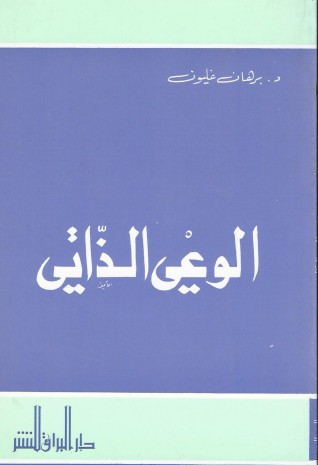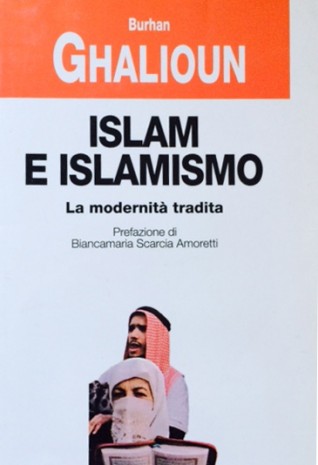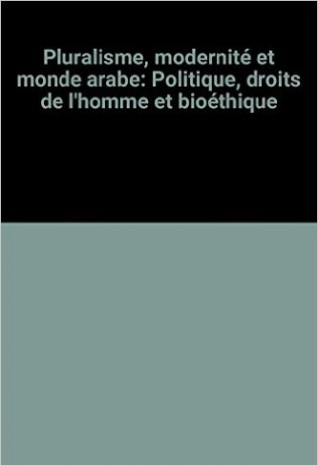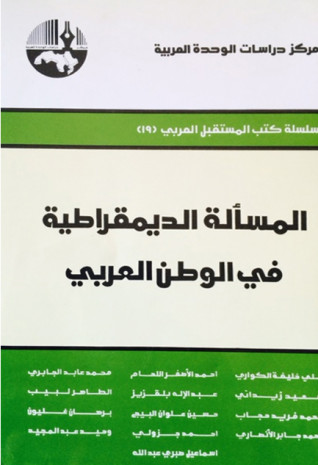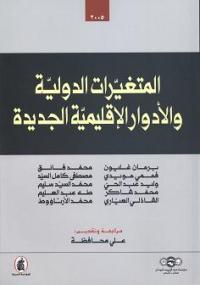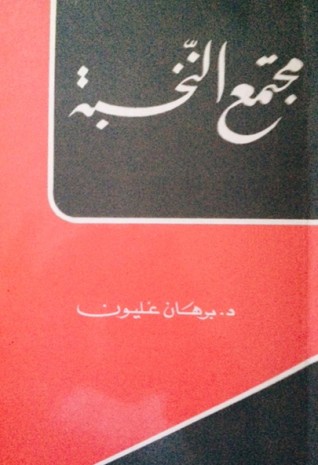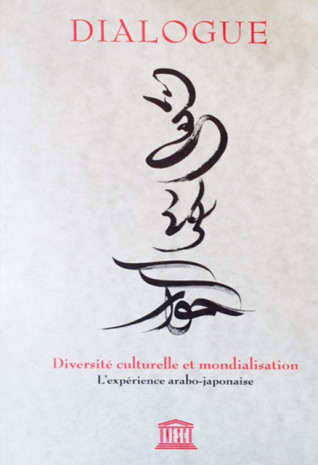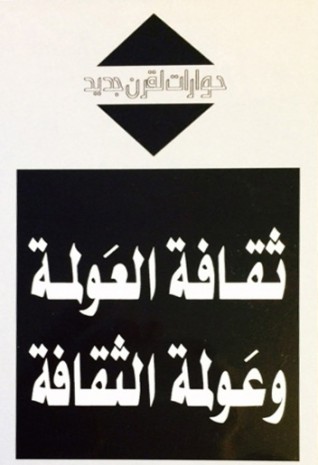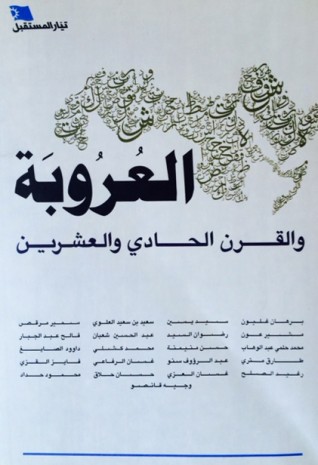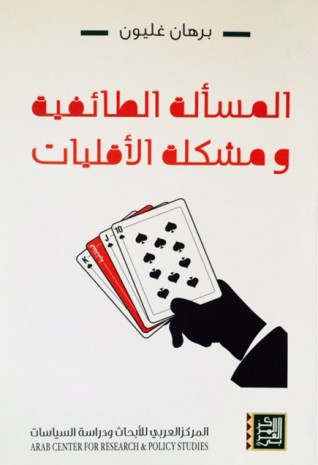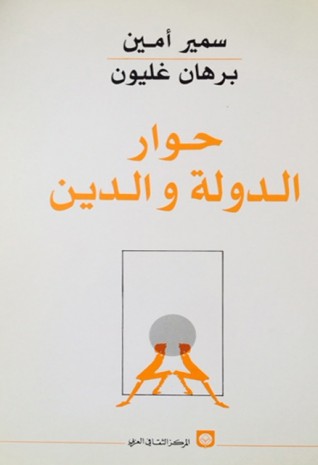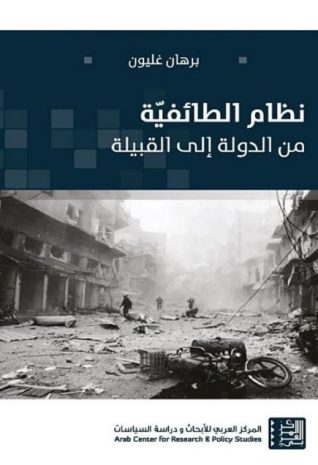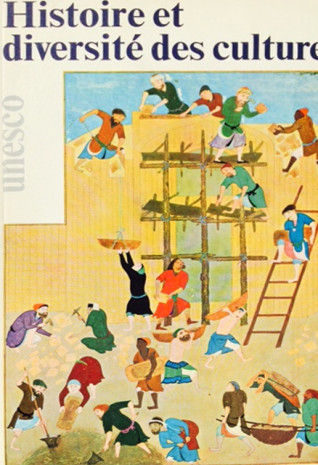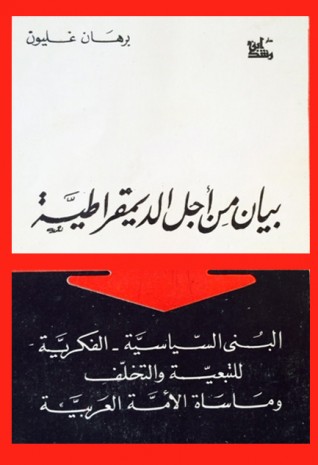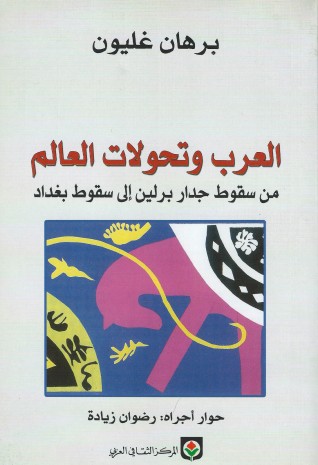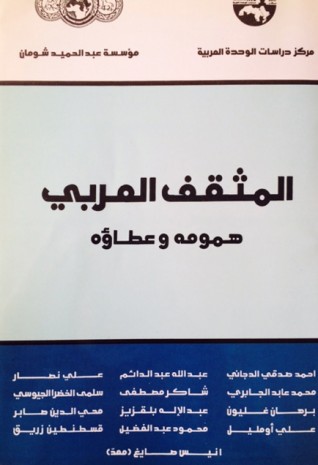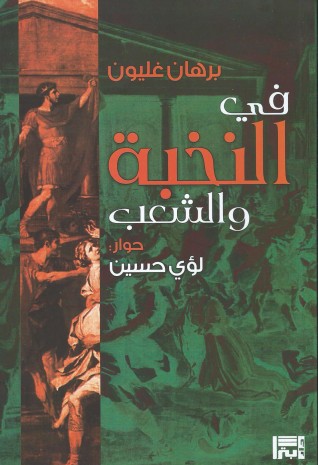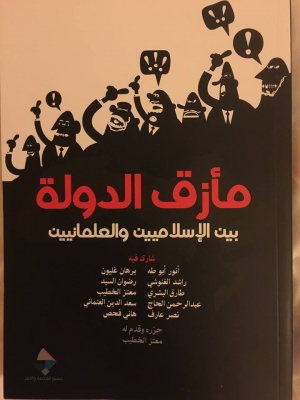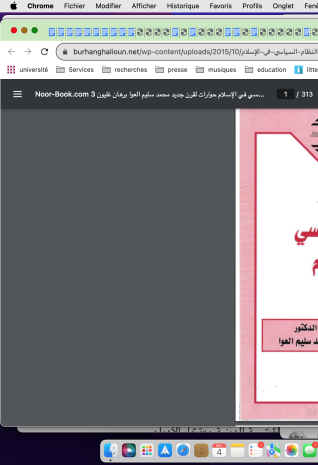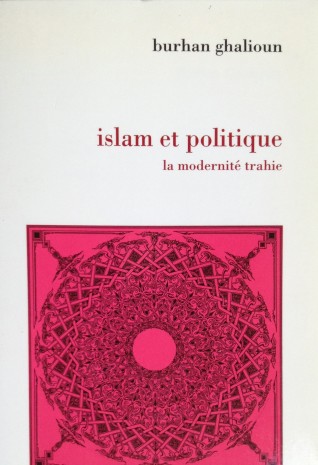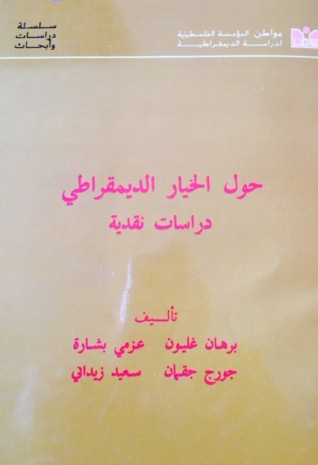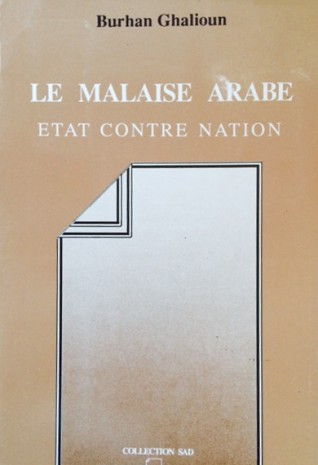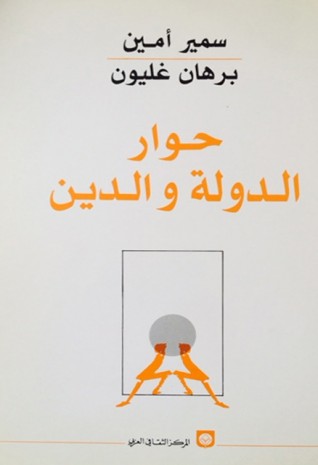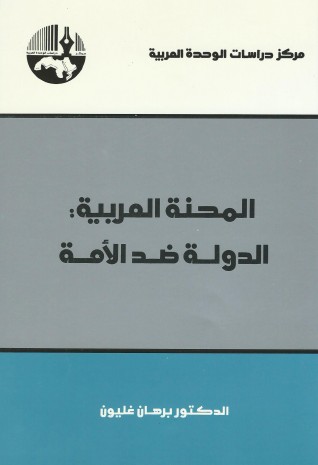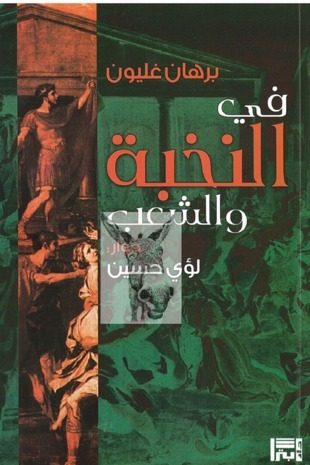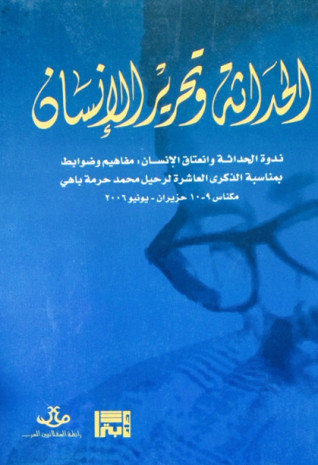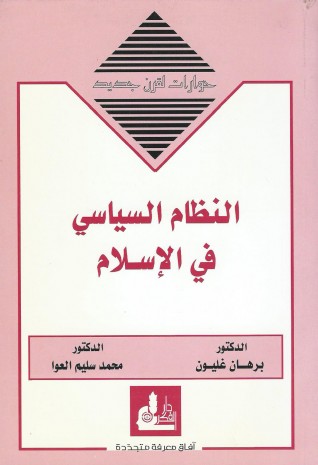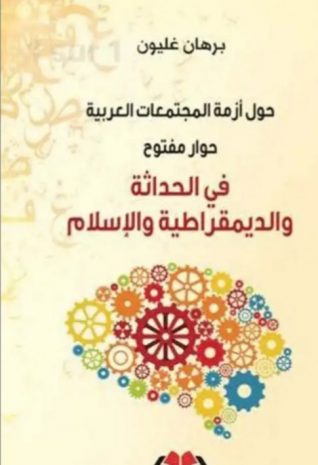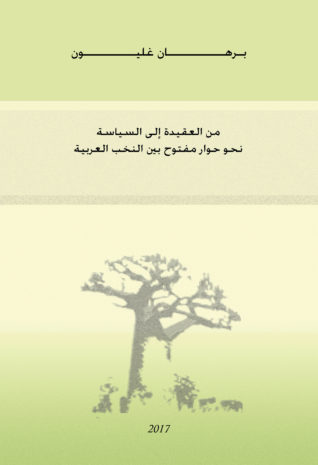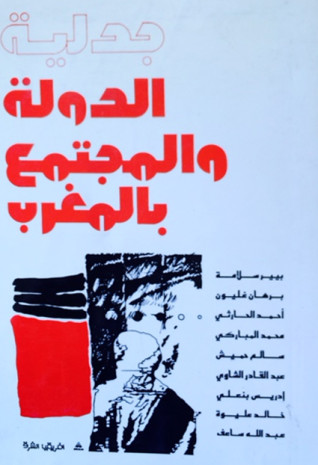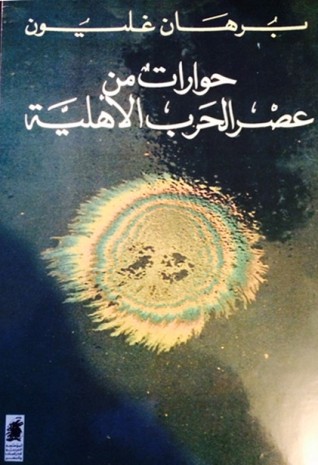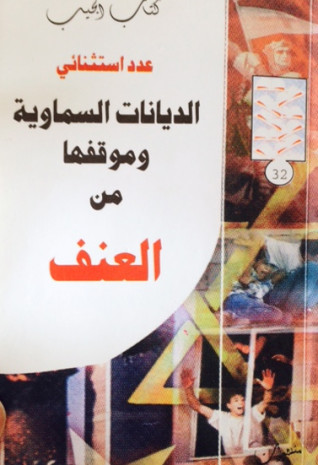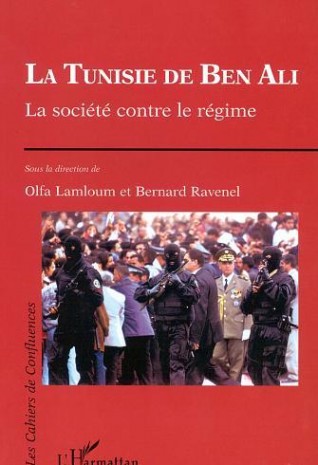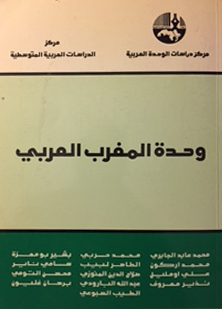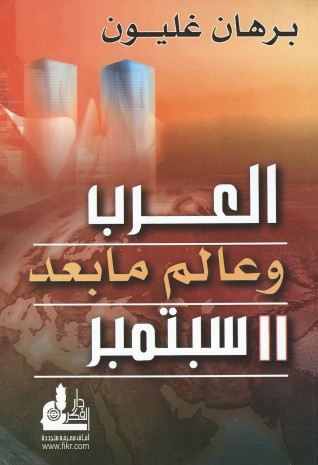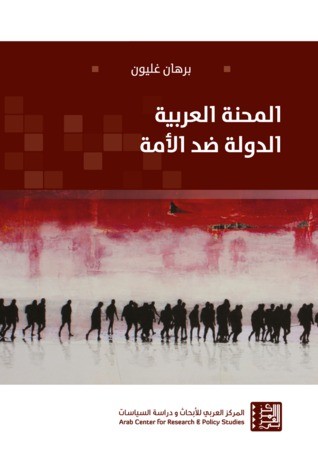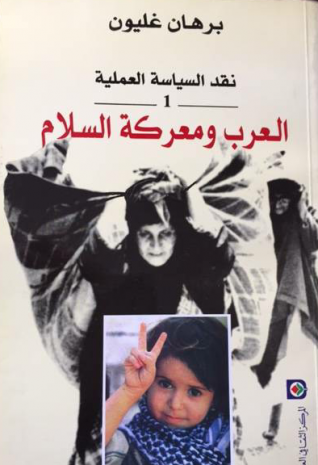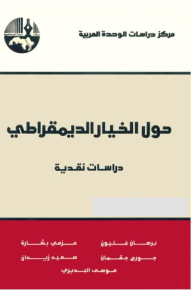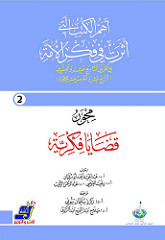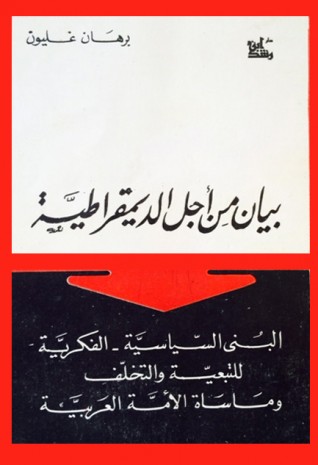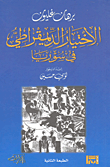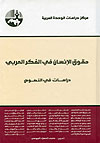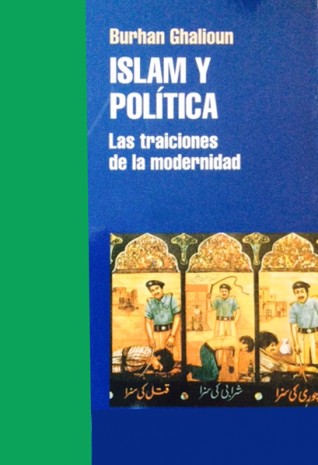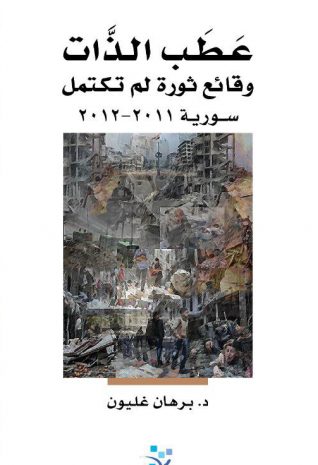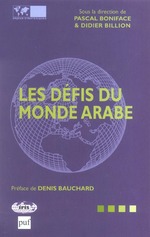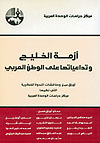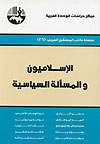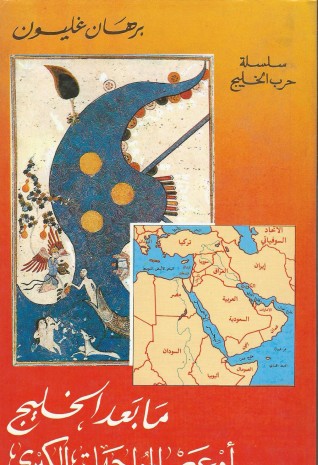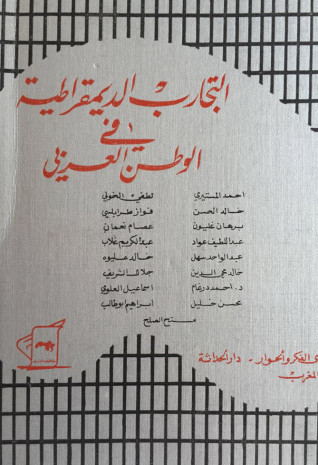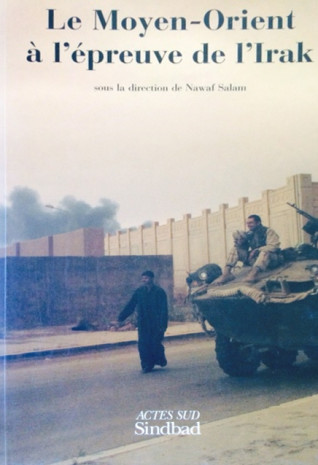Islamology Comes to the Aid of Islamism
2010-06-27:: Diogenes 226
1. At the Heart of the Debate between Intellectuals from Both Sides: the Idea of an Incompatibility between Muslim Beliefs and the Demands of Modernity
The idea of contrasting a traditionalist, unchanging Islam with a rationalist, innovative west is not new. Since the late nineteenth century the incompatibility of Muslim beliefs with the demands of modernity has been and remains an idea in the centre of the debate between intellectuals from both sides of the Mediterranean (Renan, 2002; Hourani, 1962). Since then the terms of that debate have not changed conspicuously.
And so for large sections of western opinion Islam’s responsibility in the historical decline of Muslim societies does not even need to be proved. This is not to do with the xenophobic literature that has appeared over the last few decades but with academic islamophobia (Rosier-Catach, 2009).
The rise of radical islamism in recent decades, the violence it has caused here and there, the disorder it continues to provoke in Muslim countries, the threat it constantly poses to states and international order are having the effect of reinforcing those beliefs and confirming what some specialists in the field have always attempted to prove: that Islam is not a religion like the others and that Muslim societies are still unable to bring about the changes necessary for their entry into modernity.
This naturally implies that on the one hand Islam has remained unchanged in its fundamental values, at least since its classical founding phase (eighth–tenth centuries); and on the other that, despite the obvious changes the Muslim world has witnessed since the eighteenth century with the disappearance of all its empires, it still has a significant role to play in the cultural, political and social life of Muslim peoples; and finally that only an in-depth religious reform, tearing Islam away from its medieval roots and transplanting it in the soil of secularism and rationalism, will make it possible for Muslims to change perspective and assimilate the liberating values of modernity: individual liberties, democracy, interest in economic development and improvement in everyone’s quality of life.
Holding as they do the ‘secrets’ of Muslim societies, their mentalities and aspirations, Islamic studies are today attracting more and more people: researchers, politicians, soldiers, economists, journalists and others. They are all sure that understanding Muslims necessarily involves understanding Islam, from the Revelation in the seventh century up to the sudden appearance on the international scene of contemporary islamist movements. This all makes up a single structured and continuous history impelled by the same motives. In some ways the history of Islam is no longer part of world history according to this view; it runs parallel to it. Here the past lives alongside the present and the future is already written into the past.
A new social demand was born around knowledge of Islam. And islamology is trying to meet it. From being an academic field left for decades on the margins by socio-political problems connected with decolonization, nation-building, national movements and development, it came to the fore in the 1980s as a new academic discipline helping to explain, not only islamic religious life, as had always been the case, but the very evolution of societies whose specificity is allegiance to Islam.
It is less a genuine discipline that clearly defines its object, determines its method or creates its own analytical tools (the word Islam is already a example of confusion since, as we commonly use it, it designates at one and the same time a belief, cultural traditions, a largely lay history, current political systems, societies with different cultures and psychologies, etc.) than a strategy directed by the idea that the explanatory models of the social sciences are not applicable to Islam: consequently interpreting the history of Muslim societies, both modern and classical, must of necessity involve a prior change in technique and method.
So, whereas chairs in islamology are proliferating in the universities, Arab world specialists, historians, anthropologists, sociologists, political scientists, economists, demographers and others are almost abandoning the study of real living societies in favour of islamic studies. People are increasingly taken up with theology, religious
history, interfaith conflicts, the relationship between dogma and modern values and ideas (the dominant research and academic conference topics are: Islam and democracy, Islam and secularism, Islam and modernity, Islam and the market economy, etc.) and decreasingly with the history of ideas, the shaping of nations, actual political experiences or the changes occurring in Arab or Muslim societies – whereas in the previous period people were practically only interested in emancipation movements among ex-colonial peoples, socialist or Marxist revolutions, liberal or statist development strategies, or modernization processes in transitional societies. It is in that context that post-colonial studies blossomed and Edward Said wrote his book Orientalism, which was the starting point for a vast movement of criticism of classical orientalist literature. The debate is still ongoing, as is shown by two recently published books (Varisco, 2007; Ibn Warraq, 2007).
Almost everything published today on Muslim societies, whether in the west or the east, has to do with Islam in one way or another. This research is clearly dominated by theological, pseudo-anthropological, historical and identity-focused topics, while very little research is devoted to current problems and challenges, be they economic,
political, social or cultural, which are still being dealt with by general social disciplines. Stress is laid on Koranic exegesis, textual and historical studies, rather than empirical research and fieldwork. The latest French translation of the Koran (Chebel, 2009) has arrived to join about fifty existing ones, only around ten of which are worth studying, according to the author.
2. A Particularist Science for Particular Societies
And so islamology is replacing orientalism, which has been damaged by three decades of epistemological and political criticism. Its intention is to be a particularist science for particular societies. It is based on two observations:
1. that in Muslim society religion still plays a significant part in establishing social
order;
2. that Islam is a particularly compact religion which, unlike other religions, does not accept any distinction between temporal and spiritual and therefore does not allow separation between private and public life, civil and political society.
It was Bernard Lewis (2003) who systematized and popularized this essentialist approach to Islam, which is also the source of Huntington’s theory of the clash of civilizations (1996). But both these authors are continuing an already longstanding tradition in research on Islam (Rodinson, 1978; Salvadore, 1996).
This tradition cannot but condemn its followers to reproduce the same historical scheme and perpetuate the same model of society. Islam appears as the kernel or soul of a failing social structure resistant to modernity. Condemned by that structure to see the world in all its aspects solely through the religious prism, Muslims, apart
from a few individual cases, are assumed to be unable to assimilate the values of a secularism which has become a synonym for progress.
In this context Islam is decreasingly seen as a normal religious belief, answering certain spiritual and moral needs. It is perceived as a community ideology, or even a national identity, which cuts Muslims off from the modern world. Some people occasionally see it as the very antithesis of modernity. The two words are thought to be antagonistic by definition. Therefore Islam is assumed to be the main obstacle to technical, scientific and economic development as well as the social and intellectual emancipation of Muslim countries.
The only possible solution would be either to release this social structure by separating it from its religious basis, or else to carry out a reform of Islam. This is what most of the research in the social and human sciences on Middle Eastern countries is committed to, so much so that the boundaries between scientific approach and ideological militancy seem to be blurring, even though the latter sometimes claims humanist motives.
Muslims’ dilemma appears to be complete. They have a choice between only two solutions, one more tragic than the other: preserving their Muslim identity at the price of cutting themselves off from the modern world, or signing up to modernity by giving up their identity. What is being asked of them is nothing other than a choice (an impossible one) between essence – or substance – and existence.
This rules out any possible compromise between Islam and modernity because, as Lord Cromer, the British governor of modernized Egypt in the early twentieth century (1883–1907), was fond of repeating, Islam will be Islam no more (Cromer, 1908).
3. Islam at the Heart of all Social Issues? Muslims Turn their Backs on Rational Thought
Fortunately not all those who call themselves islamologists support such radical ideas. Some, who have a more nuanced view, see the distinction between Islam and Muslims, rigid dogma and social history, the religious aspect and those aspects connected with the civilization which are of necessity secular. For them stagnation in islamic societies is linked more to paralysis of thinking than the quality of Muslim belief. A spirit of innovation and creation that has run out of steam, the conservatism peculiar to the ulemas, the temple guardians, the decline of Arab and Muslim culture, these are all factors to be emphasized. In the ulemas’ late writings the word (revisionism) has been assimilated to , which means innovation. Many islamologists have repeated that confusion and so confirmed the innate conservatism of Islam as a religion. Rejection of the is based on a prophetic saying ( ) that declares: all is a false trail, and every false trail leads to hell. And so they have led Muslims into intellectual and religious degeneration, incapable as they have been of evolving a rational thought that might make an unavoidable epistemological break when the time came.
Stressing the great events that have marked the emergence of this closed Islamic thinking, some people point to the defeat, around the thirteenth century, of the philosophical and/or rationalist doctrines of the ‘mu’takalimûn’ ( ): literally, those who use a (coherent) discourse, who can organize their thought. But in this context the word means a school of thought and a group of intellectuals who were responsible for creating a rationalist discourse within Muslim theology. In their view that defeat not only confirmed the victory of Sunnite doctrines and the conservative formalist legalist school. It also put a full stop to the debate between ideas in classical Islam by legitimizing the prior condemnation of any innovation and by imposing on Muslims methods of imitation and conformism. Islamic reason found it difficult in these circumstances to grasp the advent of the epistemological, rationalist and scientific revolution in the sixteenth–seventeenth centuries, and even more difficult to contribute to it (Arkoun, 1984; Hanafi, 1988).
Reaching back further into history, other authors search for this rationalist deficit in Arab culture’s founding moment. The victory of eastern gnostic trends in the seventh– eighth centuries takes away from Arab and Islamic reason, in the very phase of its construction, the possibility of advancing towards a rationalist structure operating
through de facto judgement and demonstrative arguments. Of course there was the great Ibn Roshd ( , Averroes: Córdoba 1126–1198), but sadly he did not manage to create a school in the Muslim countries as he did in Europe (al-Jâbirî, 1982, 1994).
Turning their backs on rational thought, Muslims condemned themselves to living in conformism and seeing every innovation as a threat of betrayal. And so by placing themselves outside the political and intellectual upheavals that shaped the modern world, they remain deeply imbued with premodern values, in both their intellectual functioning and their moral judgement. In the face of a modernity that seems inaccessible to them, or even opposed to their identity, they try to take refuge in an idealized past. Thus faithfulness to identity is expressed as increasingly determined traditionalism and rejection of a modernity that is now perceived rather as a source of alienation, deviance and foreign domination than as an argument for emancipation and prosperity (Ghalioun, 1997; Mernissi, 1992).
But whatever the method, the analysis remains the same: Islam is at the heart of all the social issues and its renewal alone will give Muslims the chance to emerge from the impasse and start on a cultural, social and economic development that will enable them to become part of the modern world.
4. Getting Rid of ‘Theologocentrism’
The results of this islamology, which is a victim of what Maxime Rodinson has called ‘theologocentrism’, are extremely disappointing. Even though we are better informed nowadays about Islam’s particular history, our knowledge of Muslim societies and the changes and crises they suffer is vaguer. Because we want to explain everything with reference to Islam, we end up making everything opaque, the religion that is no longer a belief and societies’ dialectic that can be reduced to ideological issues.
Today we fail to understand Islam as a religion and Muslims as forming real historical societies where many actors clash around resources other than affirmating an idea or validating an identity. The insistent rise of islamophobia in western countries and religious fundamentalism in Muslim countries reflects this increased failure of understanding. The gulf between islamic and western societies has never been so radical.
By focusing on religion islamology disguises the real questions posed by the process of modernizing the Muslim world: why does religion still have that role in societies that have been dealing with modernity for two centuries? What is the origin of Islam’s resistance to the changes and fascinations of material and intellectual modernity?
Why has reform of Islam been so long coming, why has it not managed to happen and why has it not been possible? Thus the responsibilities and roles are reversed. The cause is the social, cultural, religious and political regression that has resulted from the stalled modernization process.
The idea of a theocratic Islam, fixed and unchangeable, responsible for Muslims’ misfortunes, is extremely useful. It justifies, on one hand, maintaining autocratic governments in a region of high strategic importance and on the other continuing hegemonic, aggressive policies towards peoples whose participation in decisionmaking in their own country is being rejected. How far can we separate the crisis in Afghan society and the extraordinary rise in islamic extremism and archaism from the serial manipulation and intervention the country has suffered and continues to suffer (from the soviet occupation up to the war waged by the USA and NATO) and whose effect has been to wreck all the social and cultural balances and destroy all the traditional structures?
The idea of Islam’s incompatibility with modernity, which the dominant strand of islamology puts forward to explain Muslim societies’ failure in their efforts to modernize, serves to exonerate the two real culprits in the slide into crisis, both in the Arab countries and in many non-Arab non-Muslim countries: on one hand an extremely hierarchical international order, which controls access to resources and decides on their use for the benefit of transnational elites; on the other, systems of control and power kept in place for the sole benefit of local elites in close cooperation with the transnational elites. Not only did the two main actors on the scene have no interest in controlling islamic extremism and islamophobia, on the contrary they relied on them to maintain the existing order and preserve their respective positions.
It is from this viewpoint that we have to interpret the military option which the western powers have favoured up to now to cope with extremism and whose result today is turning out to be catastrophic. It was also the aim American president George W. Bush sought to achieve when he tried to give his military action in Iraq the badge of the new Crusades and the struggle between the axis of good and the axis of evil.
The islamophobia which is fed largely by the ideas of a devoted islamology, making Islam into a total social system, alienating Muslims and cutting them off from the norms and values of the rest of humanity, is used to serve carefully designed strategic plans.
A few years ago I attempted an explanation which on one hand tries to integrate the problem of religion and its renewal into the whole issue of the transformation of Muslim societies, and on the other seeks to include the history of this transformation in the overall history of modernity. Indeed, contrary to ideas circulating today, islamism as it is now developing does not accept either religion’s overriding importance in the life of Muslim societies, or the ossification of Islam, or its resistance to change.
In fact it expresses, in a way that has nothing to do with Islam’s original teachings, a new ideological reaction to the crisis caused by the failure of modernization projects which were already very advanced and have played a crucial part in restructuring Arab societies over the last two centuries, including in the religious field. Like any ‘counter-revolution’ it expresses frustration and resentment in the face of what rightly appears to be a series of unkept promises, more than a desire to return to the values of the past or a wish to break with the modern world. Reaction against the idea and values of modernity has been commensurate with betrayed aspirations and the effort made by societies to realize them. This is why the rise of islamism has been astounding in the countries that have experienced the greatest changes such as Iran, Algeria, Tunisia, Egypt, Syria, Iraq, while it has been far more moderate in the less advanced countries, which have preserved their traditional structures.
On the other hand where the modernity project has produced palpable results, for instance in Turkey, not only has islamism been easy to contain, but it has offered an option for maintaining the modern secular system and renewing its base after the liberal and military elites ran out of steam.
The key to explaining this crisis in projects for transforming and modernizing the societies that have given birth to islamism, ethnicism and wars of ethnic cleansing (causing the breakup of states in some cases) is to be found elsewhere than in religions or traditions. It lies in the often brutal halt called to processes of growth and development which has been quite obvious since the 1980s, under the dual impact of foreign and domestic policies. The rise of neoliberalism in industrialized countries, the capture of government in Middle Eastern countries by automous groups or even clans, which has accentuated the gap between dominant elites and the rest of society, deterioration in the political climate and colonization of state institutions by networks of private interests, widespread corruption and the worsening disparities and inequalities it produces – these are phenomena that have prepared the ground for a new era of stagnation and regression in most Muslim countries.
And so it is to the failure of a model of modernity, lacking sufficient resources, designed solely for elites’ or ethnic clans’ need for domination, devalued and devaluing, sometimes devastating, that we should look for the causes of a multifaceted rupture in the system: a rupture that is religious, cultural, political and economic.
A failure first of all of the so-called culture of rebirth and progress, with the perversion of rationalist, nationalist, socialist amd modernist ideologies, domination of a single thought, systematic violation of conscience and the cult of leaders. Then a failure of nation-building, with the takeover of the state, totalitarianism, arbitrary behaviour in politics and the law, the omnipresence of the forces of repression, annihilation of basic liberties – everything that obstructs the realization of the idea of citizenship, individuality, partipation and social solidarity. Finally a failure of projects for industrialization and establishing science and technology, on which hope of material progress was based. Widening of the social base of islamism and radicalization of its demands are the result of these barriers affecting societal systems and their ideological, political and social foundations. These ruptures seem to be the result of deliberate policies adopted by groups in power and of an international order dominated by an economic system and riven by many rival strategies that do not leave any society protected from global dynamics.
To add a relative note to this analysis of the current situation, which is historically situated and explicable by the history of the last two centuries, I should like to conclude by handing over to Maxime Rodinson (1978: 65), who reminds us that in the age of the Enlightenment Islam was ‘seen as a rational religion, far from the Christian dogmas that were the most contrary to reason, and accepting of very few mythical ideas and mystical rites (a minimum that was probably necessary, it is thought, in order to gain the allegiance of the masses), reconciling the call to a moral life with a reasonable respect for the demands of the body, the senses and social life. All in all it is a religion very close to the deism professed by the majority of Aufklärer.’
Burhan Ghalioun
University of Paris III Sorbonne
Translated from the French by Jean Burrell
References
Al-Jâbirî, M. ‘Â. (1982) . Beirut: .
Al-Jâbirî, M. ‘Â. (1994) Introduction à la critique de la raison arabe, translated from the Arabic by A. Mahfoud
and M. Geoffroy. Paris: La Découverte.
Allen, C. and Nielsen, J. S. (2002) Summary Report on Islamophobia in the eu after 11 September 2001. Vienna:
European Monitoring Centre on Racism and Xenophobia.
Arkoun, M. (1984) Pour une critique de la raison islamique. Paris: Maisonneuve & Larose.
Arkoun, M. (1989) Ouverture sur l’islam. Paris: Jacques Grancher.
Burgat, F. (2007) L’Islamisme en face. Paris: La Découverte.
Césari, J. (1997) Faut-il avoir peur de l’islam? Paris: Presses de Sciences-Po.
Chebel, M. (2009) Dictionnaire encyclopédique du Coran. Paris: Fayard.
Cromer, E. V. (1908) Modern Egypt. London: Macmillan.
Dassetto, F. (1996) La Construction de l’islam européen. Approche socio-anthropologique. Paris: L’Harmattan.
Delthombe, T. (2005) L‘Islam imaginaire. La construction médiatique de l’islamophobie en France, 1975–2005.
Paris: La Découverte.
Étienne, B. (2003) Islam, les questions qui fâchent. Paris: Bayard.
Ghalioun, B. (1997) Islam et politique: la modernité trahie. Paris: La Découverte.
Hanafi, H. (1988) . Cairo: .
Hourani, A. (1962) Arabic Thought in the Liberal Age. Oxford: Oxford University Press.
Huntington, S. (1996) The Clash of Civilizations and the Remaking of World Order. New York: Simon & Schuster.
Ibn Warraq (2007) Defending The West. A Critique of Edward Said’s Orientalism. New York: Prometheus.
Kepel, G. (2004) Fitna. Guerre au coeur de l’Islam. Paris: Gallimard.
Lewis, B. (2003) What Went Wrong? The Clash Between Islam and Modernity in the Middle East. New York: Harper Perennial.
Mernissi, F. (1992) La Peur-modernité. Islam et démocratie. Paris: Albin Michel.
Renan, E. (2002) Averroès et l’averroïsme. Paris: Maisonneuve & Larose.
Rodinson, M. (1978) La Fascination de l’Islam. Nijmegen: Association néerlandaise pour l’étude du Moyen Orient et de l’Islam.
Rosier-Catach, I., Büttgen, Ph., De Libera, A., Rashed, M. (2009) Les Grecs, les Arabes et nous. Enquête sur l’islamophobie savante. Paris: Fayard.
Roy, O. (2005) La Laïcité face à l’Islam. Paris: Stock.
Roy, O. (2007) Le Croissant et le chaos. Paris: Hachette.
Salvadore, A . (1996) ‘Beyond Orientalism? Max Weber and the Displacements of “Essentialism” in the Study of Islam’, Arabica 43(3): 457–485.
Varisco, D. M. (2007) Reading Orientalism: Said and the Unsaid. Seattle: University of Washington Press.

